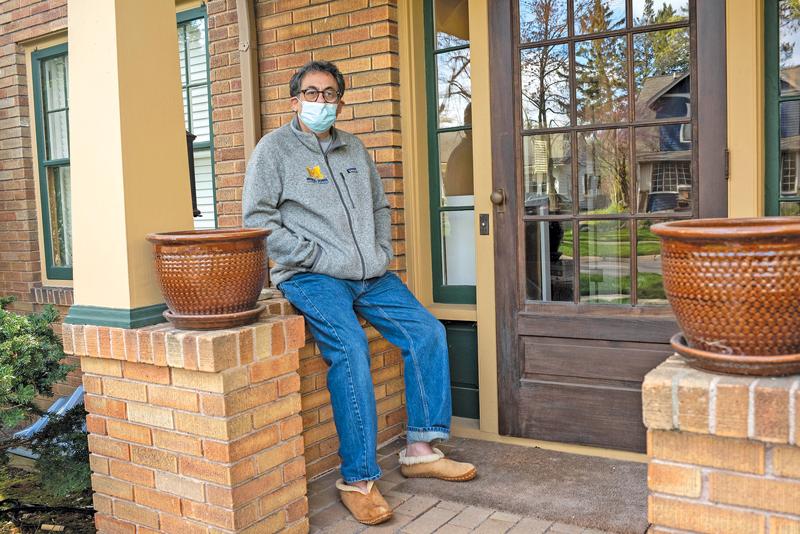Markel, who has been researching pandemics for decades, says he’s had an “embarrassment of riches” this year, writing for the New Yorker, the Washington Post, and other publications, as well as appearing on radio shows. But in the face of Michigan’s third surge, he’s also weary of having to constantly explain the need for social distancing.
“The way it’s ripped through Michigan is predictable,” he says. “When you open the floodgates [to socializing] when the virus is circulating, people get sick, and the cases go up,” he says with a hint of exasperation. “When you close the floodgates, the cases go down, and the deaths go down. OK?”
Markel, sixty-one, is fully vaccinated. But his mother died of Covid last year, and he’s still very cautious about possible exposure. Recently, though, he accepted a cousin’s invitation to meet at Denny’s restaurant. They’d been there before, but “we ate outside, and nobody was there,” Markel says. “It was safe.”
This time, they were seated inside. At first they were pretty much alone, but “all of a sudden, instead of seating people every other seat, it was crowded with college kids,” Markel says. And none were wearing masks.
He told his cousin, “I just don’t feel comfortable here.” So they left.
Markel says that in December, after authorization of the first two vaccines from Moderna and Pfizer, he was “very hopeful” that the pandemic might soon be under control. But the U.S has since paused use of a third vaccine, from Johnson & Johnson, and Europe a fourth, from AstraZeneca, after reports of rare blood clots. The AstraZeneca vaccine was expected to protect “one out of five people in the world,” Markel says. “That’s a big deal, for a vaccine to be held up.”
The situation is better in Washtenaw County. By mid-April, 80 percent of local seniors had received at least one dose of vaccine, and in the first half of the month they accounted for just 5 percent of new cases. But Michigan is the epicenter of the more contagious and dangerous B.1.1.7 variant, and, with most younger residents still unprotected, new infections were at an all-time high.
In the pandemic’s first wave last spring, Michigan governor Gretchen Whitmer declared a state of emergency and ordered businesses and schools to shut down. But the state supreme court later overturned the law she’d relied on, so the state health department had to reissue the orders. And this time, Whitmer merely recommended that businesses and schools curtail their activities.
The governor did ask the federal Centers for Disease Control and Prevention to provide more vaccines, but CDC director Rochelle Walensky refused. Saying that vaccines would take too long to have an impact, Walensky called on Whitmer to “shut things down.”
Markel calls the governor’s recent inaction “detrimental to our public health. I admired her bravery for what she did earlier. All I can do is wonder what’s up.” Interviewed on NBC’s Meet the Press, Whitmer pointed to the court loss and the availability of vaccines as factors in her decision.
While wishing the governor would do more, Markel echoes her advice to keep taking precautions against infection.
“What I tell other people and what I try to do—with the exception of this Denny’s thing, and I’m still freaking out about it—is follow the CDC’s rules. Keep wearing your masks, until at least 90 percent of us are either vaccinated or have gotten Covid.
“Follow the rules. Use common sense. Be safe rather than sorry.”
